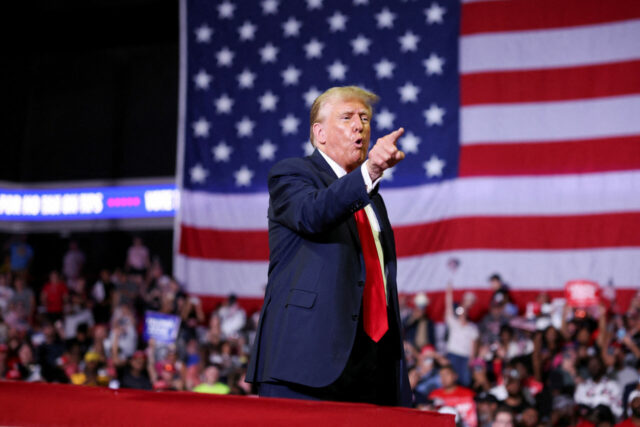The U.S. Supreme Court is set to deliver a crucial ruling on former President Donald Trump’s immunity claim in a federal criminal case related to the 2020 election.
This decision, expected on Monday, marks the end of the court’s current term and could significantly impact the ongoing legal battles surrounding Trump.
Trump’s legal team is arguing for full immunity
The case, brought by Special Counsel Jack Smith, charges Trump with attempting to overturn his 2020 election loss. Trump’s legal team argues for “absolute immunity” for official acts during his presidency, while prosecutors maintain that no one is above the law.
During April’s arguments, the court’s conservative majority seemed inclined to recognize some level of immunity, though perhaps not as broad as Trump sought. The ruling will address Trump’s appeal of a lower court’s decision rejecting his immunity claim.
Court’s handling of the case had helped Trump
The court’s slow handling of the case has already benefited Trump by delaying any potential trial until after the November 5 election, where he faces incumbent President Joe Biden in a rematch.
Trump faces multiple legal challenges:
1. Federal charges for election interference
2. New York state conviction for falsifying business records
3. Georgia state charges for election subversion
4. Federal charges for mishandling classified documents
The immunity ruling comes 20 weeks after Trump sought relief from the Supreme Court, contrasting with the court’s swifter action in reinstating him to Colorado’s primary ballot earlier this year.
Trump can end investigations if he becomes president
If Trump regains the presidency, he could potentially end the federal prosecutions or pardon himself. However, public opinion seems to lean against presidential immunity, with only 27% of respondents in a recent poll supporting it.
The Supreme Court’s decision will not only affect Trump’s legal fate but also set a precedent for future presidents’ accountability.
As the 2024 election approaches, this ruling underscores the court’s significant role in shaping the political landscape, reminiscent of its impact in the 2000 Bush v. Gore decision.
With inputs from Reuters
Traveller, bibliophile and wordsmith with a yen for international relations. A journalist and budding author of short fiction, life is a daily struggle to uncover the latest breaking story while attempting to be Hemingway in the self-same time. Focussed especially on Europe and West Asia, discussing Brexit, the Iran crisis and all matters related is a passion that endures to this day. Believes firmly that life without the written word is a life best not lived. That’s me, Ashwin Ahmad.





